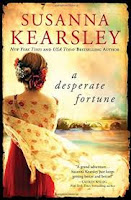Upon first reading this week's topic, I didn't think I could come up with a list of ten books I have read all set within the same locale, but then it occurred to me...
Of course I could--AFRICA!
always will, I guess!
Top Ten Books Set in Africa
This weekly meme is hosted by The Broke and the Bookish.
Top Ten Books Set in Africa
This weekly meme is hosted by The Broke and the Bookish.
Perhaps I was able to make this connection because I just
read West With the Night, Beryl Markham's autobiography.
I am in the midst of composing the review to post, and there is
so much that I want to quote directly from the text!
I agree with Hemingway:
Did you read Beryl Markham's book, West with the Night?
...She has written so well, and marvelously well, that I was completely ashamed
of myself as a writer. I felt that I was simply a carpenter with words,
picking up whatever was furnished on the job and nailing them together
and sometimes making an okay pig pen. But this girl, who is to my knowledge
very unpleasant and we might even say a high-grade bitch, can write rings
around all of us who consider ourselves to be writers ... it really is a bloody wonderful book."
It was, in fact, this praise that brought the book back into the limelight and
reissued this 1946 release in 1983 when Markham was 80 years old.
Circling the Sun, a historical fiction
novel depicting Markham's
childhood and early adulthood,
including, of course, all her
"first female" achievements!
This woman was a go-getter, to say the least!
I venture to say there was nothing much she wouldn't try...
and after all, if you never try, you never achieve.
I felt it was rather depressing, though authentic and
I definitely appreciated Gordimer's writing skill.
I guess I'd not read much of anything before that dealt
with the children of activist parents and their sense of
abandonment and neglect. I felt so badly for both Will and Baby.
Then to realize his mother was also leading a duplicitous life!
In fact I immediately started researching and have decided I

One of the first books I ever read that was set in Africa was
The No. 1 Ladies' Detective Agency by Alexander McCall Smith!
I absolutely love this series and feel as if I am there...in Africa, as I read each installation. Book #17, Precious and Grace, is due to be released October 11, 2016. I need to catch up before that time and then post a review on this blog, though I have mentioned McCall Smith and this series, as well as others of his (e.g. Corduroy Mansions and Isabel Dalhousie),
I have yet to post a review here.

Heart-wrenching, yet I feel this is
a very necessary story
that should make each of us think about
every single gallon of gas we consume...
Little Bee by Chris Cleave.
From my Goodreads review:
This story depicts the ultimate in loving sacrifice.
And not just once...
I cannot purchase gas without thinking of this one...
and regretting that I cannot do more.
by Ishmael Beah
These children!
Such abuse and terror they suffer,
and through no fault of their own
other than being alive!
All these people displaced from
their homes and villages,
living in the wild and trying
to obtain food just to survive,
never knowing when they may be attacked yet again!
King Leopold's Ghost by Adam Hochschild
My Goodreads review posted January 25, 2013:

Read this about 2 years ago for book club and
I can't remember when I have absolutely loathed and
despised a historical figure as much as I
now do King Leopold II.
I realize it was a very different age with attitudes and
beliefs that were very different, at least among the
majority of people, but I can't stand it.
The exploitation of others for purely monetary gain,
power, and prestige sickens me.
I equate this with the present-day corporations that
exploit workers outside the U.S. because they can
get by with paying a small pittance for labor and
thereby greatly increase their 'profit margins.'
Another huge advantage for companies
in this global production enslavement--no need
to provide safe work environments, decent living wages,
and FORGET any benefits or protections on the job!
Why we allow this, I will never understand, except that I guess
the white guys who make up the 1% really DO control the world!
It is beyond reprehensible, in my opinion! Anyway, I apologize for my rant!
This book gives an excellent history of the invasion of Africa and literal and figurative
enslavement of the people living there and is well worth the read
to gain this knowledge, though it literally makes me nauseous to even think of
this historical genocide. The stats will blow you away...
The Poisonwood Bible by Barbara Kingsolver
The Cross-Cultural Book Club I founded at Borders read this at the same time as
King Leopold's Ghost to get a more comprehensive picture of the invasion of Africa
by greedy self-serving white men.
My Goodreads review:
This was one remarkably illuminating fictional work!
This work depicts how well-meaning yet ignorant self-centered
narrow-minded "conservative" people
(typical "white folk," in my opinion) can destroy so much
while intending to "convert" others (especially "savages")
to their belief system. This "preacher"/white "American"
was extremely disrespectful of the people whose country and
village he had "invaded" and disrupted! Not only that,
but he drags his family out to a very primitive
(in comparison to the U.S.) society with absolutely
no preparation or research to determine what they might need most to survive, let alone thrive. This was an extremely powerful and intense read; enlightening, to say the least! Lesson: meaning well is not enough! Be smart! Research! The fact that you have white skin does not make you smarter than anyone else,
and especially doesn't mean you know what is best for anyone else!
 Cutting for Stone by Abraham Verghese
Cutting for Stone by Abraham Verghese
My Goodreads review:
For me, this book was quite reminiscent of the
writing style of African authors I have read,
so no surprise to learn the author was
born and raised in Ethiopia.
This book was quite intense and dramatic,
yet in an understated way at times.
The characters were authentically true to
themselves throughout the book which created
a very stable foundation for the story.
My only hesitation with this lengthy saga was
the Sister's mysterious/unknown impregnation.
I found the medical details fascinating, as well as the characters, and I thrive on characterization!
What is your favorite setting for a book?
Happy reading!
--Lynn












